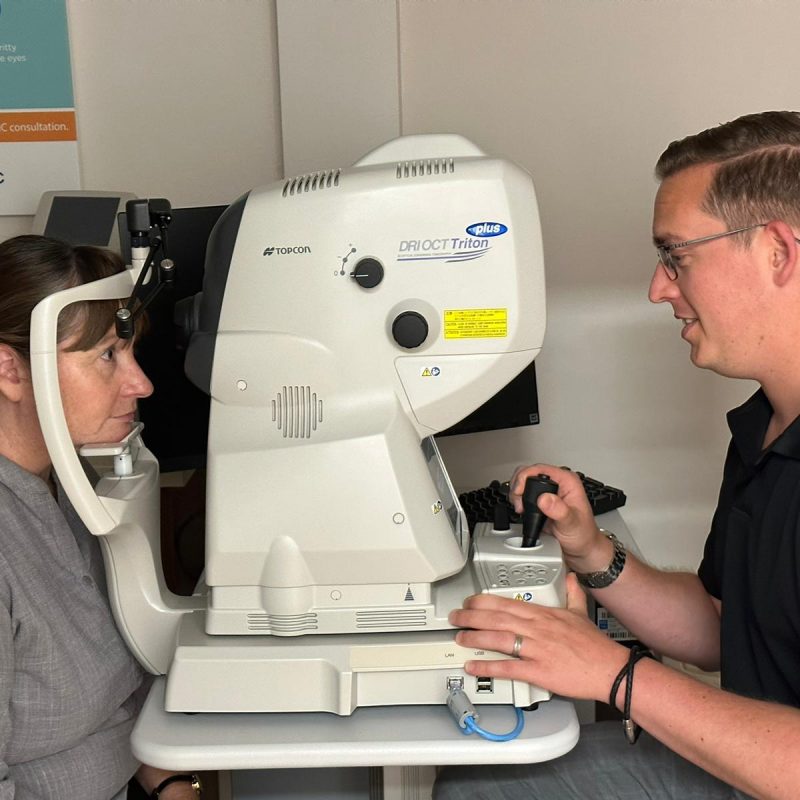
Since 2010, our patients have benefited from Optical Coherence Tomography as part of their clinical care.
Optical Coherence Tomography (OCT) is a non-invasive imaging technology used to capture high resolution cross-sectional images of the retina (the light-sensitive area at the back of your eye) and other layers inside your eyes (similar to a CAT or MRI scan that you may experience in a hospital).
With the latest innovations in the technology, our new OCT captures clear and detailed images of even the deepest layers of the eye in just a few seconds. This allows our Optometrists to visualise not only the retina, but also the vitreous (the clear gel that maintains the shape of the eye), the choroid (the deepest layer of the retina), the sclera (the white outer layer of the eye), the macula (a section of the retina which forms our central vision) and the optic nerve (the pathway that transmits light impulses to our brain).
As an analogy, we often liken the OCT scan to viewing the retina as if it were your favourite cake. With traditional two-dimensional fundus photography, our Optometrists are able to see the top of the cake and the icing. With the three-dimensional imagery produced through the OCT scan, we can slice the cake in half and reveal a cross-section to see all the layers inside.
By differentiating the layers within the retina and measuring retinal thickness, this incredible technology has aided our Optometrists in the early detection and diagnosis of retinal diseases and conditions such as Glaucoma, Diabetic Retinopathy, detached retina, age-related macular degeneration and macular holes. For example, OCT scans can detect Glaucoma up to four years earlier than other methods. Detecting conditions like these at an early stage means they can be managed before they get worse and can help prevent potential sight loss.
As such, even if your vision and eye health are perfectly fine, an OCT scan will often be recommended to compliment and further our Optometrists findings. Like our Optomap and DNeye scans, it’s also useful to have a fresh scan every time we see you so that your Optometrist can monitor any changes over time.
If you’d like to benefit from having an OCT scan then please let us know when booking your next appointment.
